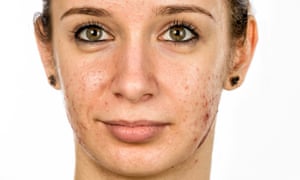
We all know that acne is not going to go away overnight. If that were the case, no one would worry about acne the way they do, and doctors would not constantly be working on new products and techniques to help rid people of their acne problems.
Perhaps someday there will be one miracle treatment that will free teens and other acne sufferers alike from the unpleasant blemishes, but for now, you will have to work with various treatments until you see results.
Everyone responds differently to possible treatments, so before going all in with one treatment, be sure to check with your dermatologist so you know if it is the right treatments for you. You may have preferences beforehand, as some people prefer to take oral medication instead of dealing with creams and other treatments that require directly putting the medication on your acne. Whatever your case may be, you should be open to all options so you can get the best possible results.
Oral Antibiotics. In the case that a topical antibiotic does not work out as planned, you could take the option of fighting your acne from the inside out. Of course, you must know that the antibiotics available are only to help kill off the bacteria multiplying in your clogged pores. They are not meant to help reduce the amount of oil your sebaceous glands produce, and as time passes, the bacteria have become more resistant to the antibiotics. If you try this option, you may have to double it up with another treatment as well.
Hormonal Treatments. Some hormonal treatments may be effective for women (sorry guys!) but some of them may not be available depending upon where you live. Or if you have larger pimples, you can talk to your dermatologist about cortisone injections. These injections usually bring down inflammation within moments and can help to flatten the pimple, which can make it easier to cover and also aids in the healing process. There are also very few side effects at all to concern yourself with and you have a much better chance to avoid scarring at the site.
External Retinoids. This type of treatment is meant to help normalize the life cycle of skin cells around follicles. In doing so, they can help prevent cells from becoming lodged inside follicles and leading to blemishes. The problem behind external retionoids (also called topical retinoids) is that they can create some irritation to your skin. You should also talk to your dermatologist about this option, as they are only available through prescriptions and will not work for everybody.
Oral Retinoids. These are vitamin A derivatives that you take orally and are meant to help reduce the oil secretion by your sebaceous glands. You will need to take the medication from 4 to 6 months. Though oral retinoids can prove to be extremely effective, they may also contain side effects that can be quite severe. You will also have to expect an initial acne flare up once you begin taking the medication, and it could be severe as well. However, oral retinoids might be your acne salvation, but as with all treatments, make sure with your dermatologist first.
No matter what you choose, you should be careful in case your skin reacts negatively to the treatment. With some treatments it will be your body that reacts and not just your skin. Always read the directions as well as the side effects if there are any. That way you will understand the best way to use a specific treatment and will know when you may need to stop in case of unpleasant side effects. Always follow the directions your dermatologist gives you and be patient with your acne treatments. After all, you already know that a few treatments will not magically make your acne go away, so do not expect to see drastic results after a few days.




The Acne Diet: 4 Foods To Decrease Acne Breakouts
There are many ways to combat acne these days. Several years ago many people did not the contributing factors to acne breakouts, however with the right research we are able to determine some foods that can actually reduce the severity of acne breakouts. Here a great acne diet that you can incorporate into your lifestyle.
Read More
How To Treat Acne Effectively and Safely - 8 Tips
Are you fed up and frustrated about having acne on your skin whether it's your face, back, neck or arms? You're not alone. Acne is a common skin disorder which affects people of all ages although it's usually more common in teenagers who suffer from hormonal changes, a major culprit for acne development. Adults too are not immune from acne. Unfortunately some teenagers who venture into adulthood can't seem to get away with acne and live with it even after becoming adults. It's of paramount importance to know how acne is triggered so that you can take the necessary steps to eradicate it and even prevent it.
Read More
The Acne Diet: 4 Foods To Decrease Acne Breakouts
There are many ways to combat acne these days. Several years ago many people did not the contributing factors to acne breakouts, however with the right research we are able to determine some foods that can actually reduce the severity of acne breakouts. Here a great acne diet that you can incorporate into your lifestyle.
Read More
Did You Know There Was More Than One Type of Acne?
When you think of acne, spots and pimples often come to mind, and you automatically assume that acne is simply acne, and that it comes in only one form.
Read More
This Article was written by : Louise Forrest, Discuss about Health Articles, it was published at March 27, 2007 and was updated at
Comments
Post a Comment